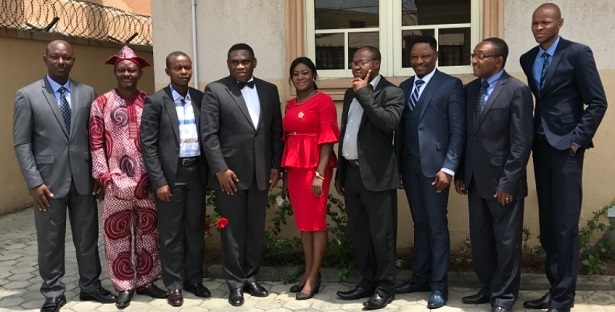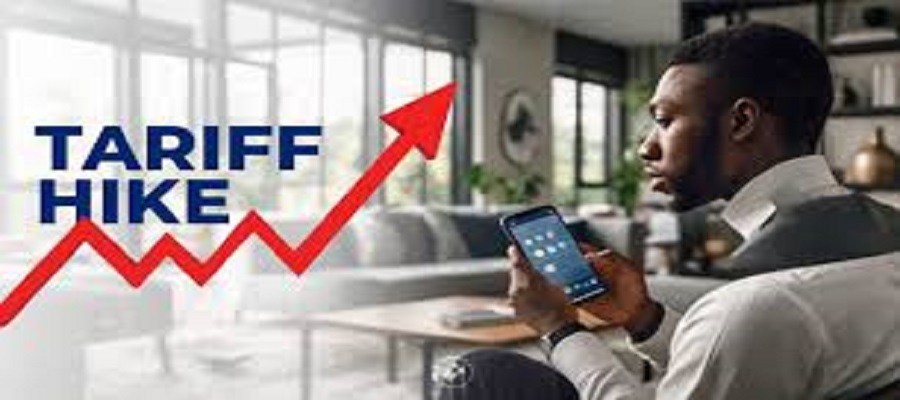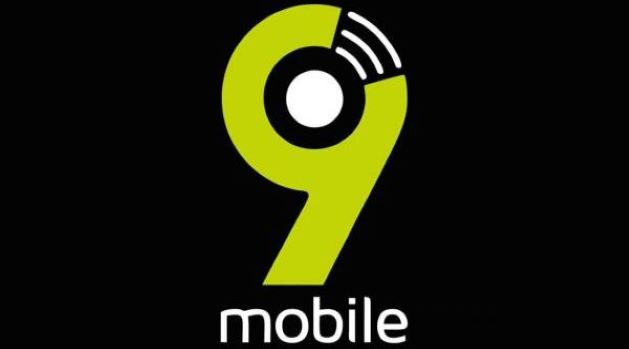Telecom
African ICT Foundation Unveils 2-Year Development Plan on Digital Inclusion

The African ICT Foundation, (AFICTF) has unveiled a two year digital inclusion development plan for the continent targeting policy and infrastructure issues on Internet of Things ( IoTs), Artificial Intelligence and Big Data.
The Foundation is non-governmental organisation established in 2009 but recently rejigged to urgently address critical issues that bothers on Africa’s digital inclusion.
The development plan was unveiled at the inauguration of the new Board of Trustees (BOT) chaired Mr Tony Ojobo, by the former Director of Public Affairs of the Nigerian Communications Commission, (NCC), held in Lagos, South-West, Nigeria.
Mr. Ojobo who doubles as the chairman of the BOT and president of the Foundation in his inaugural speech also declared a state of emergency on internet penetration stating that Africa needs a declaration of emergency in the area of ICT developments and innovation.
According to him, in the next two years, the Foundation will consciously be making efforts towards holistic involvement in in research and educational activities that involves setting the policy agenda on technological innovations, information and communication technology, trade and globalization and clean energy.
He stated that the Foundation will be getting Africa’s private sector support on critical industry issues that affect the growth of Africa’s economy while also working with policymakers to develop and promote policies and ideas, capitalising on the tremendous economic and social benefits ICT provides for Africans.
Ojobo noted that AFICTF will be encouraging adherence to high standard of research, empowerment and integrity with an internal code of ethics grounded in analytical rigor, policy pragmatism, and independence from external direction or bias.
He said that a key aspect of the development of digital inclusion in Africa will be to promote skills sustainable for the development of African nationhood, reduce the level of illiteracy and poverty in the society as well as engage African youths on IT exchange programmes.
The chairman of the BOT revealed that the Foundation the thematic theme the Foundation is using to address the critical issues of Africa’s ICT development, which he called the 4As of ICT development and deployments are: Awareness, Access, Adoption and Application
He noted that there is the need for the nations in the continent to be aware of the capabilities that ICT offers in terms of GDP growth and job creation is imperative stressing that access is critical to making this happen, especially in terms of availability and affordability.
“Our leaders need to embrace the use of ICT through its adoption for ease of business and processes required for industrial growth. Technology not applied cannot deliver the desired dividends”, he said.
He disclosed that part of the Foundation’s strategy of achieving its objective is Partnerships/Collaborations, Funding, Advocacies and sensitisation, and Capacity building/Training stressing that noting that true partnerships between governments and non-government actors are essential to addressing a problem as complex as ICT Penetration in Africa.
While calling for support, Mr. Ojobo said that no government, nation or agency can meet this challenge alone, hence the synergy through the African ICT Foundation to make information and communication technology more affordable and reachable for Africans everywhere.
He said: “Our inexhaustible focus is at the intersection of technological innovations such as telecommunications, information technology and data, life sciences, trade and globalization, agricultural Biotechnology and clean energy. It is poised towards providing high-quality information analysis, policy pragmatism, and recommendations that can be trusted.”
According to him, all projects of the Foundation shall be implemented through grants and shall designed to create demand and promote usage of ICTs in unserved and underserved communities and groups across the continent.
He said further that the projects involve are the provision of end-user devices to complement the telecommunication infrastructure that are deployed under the Connectivity Programme saying, that the Foundation will encourage and support the emergence of ICT Innovation Hubs in the continent, which will serve as platforms for growth of start-ups with capacity for development of disruptive innovations.
Telecom
FG Says 50 Percent Telecom Tariff Hike is Only a Start

Wale Edun, minister of Finance, has stated that the recently approved 50 percent tariff increase in the cost of telecommunications services is only a starting point. He noted that it is necessary to balance rising operational costs with the provision of quality services and the broader economic considerations for both consumers and the telecoms industry.

Wale Edun
He said this during an interview on Arise News at the 2025 World Economic Forum (WEF) in Davos, Switzerland.
Edun explained that the tariff review, the first in 12 years, was necessitated by inflation and a significant rise in telecom operators’ operational costs.
While operators had requested a 100 percent increase to meet cost demands, the Federal Government approved a 50 percent increment as a compromise.
“There is a need to reflect the fact that over a 12-year period, there has been a rise in costs, there has been inflation, and that needs to be reflected,” Edun said.
“It is all about compromise and the timing and sequencing of these changes. As critical players in Nigeria’s economy, we want the telcos to operate efficiently, providing quality services, and contributing to GDP growth.”
Edun highlighted that the government’s primary objective is to ensure that telecom operators deliver efficient services, such as seamless call terminations and improved quality, while fostering growth in the sector.
“We don’t want dropped calls. We want good quality services from them. And at the same time, we want them growing, employing people, and adding to the country’s GDP,” he stated.
While acknowledging the backlash to the tariff increase due to its potential impact on the cost of living, Edun maintained that the government is committed to ongoing reviews and consultations to address these concerns and ensure that the adjustments remain beneficial for both consumers and operators.
“The cost-of-living increase that has occurred has to be reflected,” he explained.
“But I believe that this 50 percent increase is a start, and it is a situation that will be looked at on a forward-looking basis as we go forward. There will continue to be review, consultation, and discussion in this area.”
The minister also noted that telecom pricing is regulated to prevent arbitrary increases and the importance of dialogue and compromise in setting tariffs.
Telecom
NANS Threatens Nationwide Protests over 50 Percent Telecom Tariff Hike

National Association of Nigerian Students (NANS) has condemned the recently approved 50 per cent increment in telecommunications tariffs by the Nigeria Communications Commission (NCC) and the Ministry of Communications, Digital Economy, describing it as not only abnormal but inconsiderate and unjustifiable.

NANS in a statement signed by Comrade Oladimeji Uthman, clerk of the Senate, National Headquarters, warned the NCC and the Ministry of Communications, Digital Economy to review the increment within 72 hours or risk a nationwide protest by over 40 million Nigerian students already going through untold hardships occasioned by rising inflation.
Comrade Uthman stated further, “This decision is not only abnormal but also highly inconsiderate and unjustifiable, especially in the current socio-economic climate that has placed an unbearable burden on Nigerian students and citizens.
“In an era where digital connectivity has become indispensable to education and daily life, such a steep increment will have far-reaching consequences for students. The proposed hike will escalate the cost of internet data and other telecommunication services, which are critical tools for learning, research, and academic activities.
“The harsh realities of Nigeria’s economic situation—marked by rising tuition fees, expensive transportation, increased accommodation costs, and general inflation—already weigh heavily on the shoulders of students and their families.”
NANS emphasised that adding a 50% tariff increment to these challenges amounts to an outright disregard for the welfare and progress of Nigerian students, saying that the association had over the year been at the forefront for affordable and inclusive access to digital infrastructure as a way to bridge the educational gap in Nigeria.
It stated that the NCC’s decision, if implemented, will further exacerbate the digital divide, excluding millions of students from accessing quality education and information as it raised concerns that the policy undermines the government’s commitment to youth development, innovation, and the digital economy agenda.
Considering the challenges faced by the telecommunications industry, including inflation and operational costs, NANS cautioned that the burden of these challenges should not be transferred to the masses, especially Nigerian students and urged the NCC and the Ministry of Digital Economy to explore alternative measures to address these issues without jeopardizing the affordability and accessibility of telecommunications services.
NANS explained further ,”As stakeholders in the future of this nation, we call for immediate dialogue with the NCC, the Ministry of Digital Economy, and relevant telecommunications stakeholders to discuss a fair and balanced approach that prioritizes the welfare of Nigerian students and citizens. We believe that together, we can find a sustainable solution that balances industry growth with public interest.
The statement added, “As the umbrella body of Nigerian students, NANS cannot sit idly by while policies detrimental to the collective interest of over 40 million Nigerian students are implemented without due consideration.
“We hereby issue a 72-hour ultimatum to the NCC to review this tariff increment and take decisive steps toward its reversal. Failure to heed this call will leave NANS with no other choice but to embark on a nationwide mass protest to demand justice and fairness for Nigerian students.
“We are prepared to mobilize all student leaders, unions, and organizations across the 36 states and the Federal Capital Territory to peacefully demonstrate against this decision.”
It warned that the planned protests will not only demand the reversal of the tariff increment but also advocate for broader consultations with stakeholders before any future policies affecting the public are implemented, saying it remained committed to peaceful advocacy and dialogue as a means of resolving issues but with limited patience.
The review, which comes amid rising inflation and economic pressures, has elicited mixed reactions. While consumers have expressed affordability concerns, industry players see it as a long-overdue adjustment to sustain operations and improve service delivery.
Telecom
9mobile Pledges to Boost Service Quality, Customer Experience

Telecommunications provider, 9mobile, has applauded the Federal Government and the Nigerian Communications Commission (NCC) for approving a 50% tariff adjustment—a vital initiative aimed at addressing persistent challenges in Nigeria’s telecom sector.

This decision, reached after extensive deliberations, marks a significant step towards ensuring the long-term sustainability of the industry by enabling the necessary investments to enhance service quality for consumers nationwide.
The telecom industry had previously advocated for a substantial tariff review to combat surging operational costs, driven by inflation, skyrocketing energy prices, and a currency devaluation exceeding 300%.
While the industry’s initial request called for a larger increase up to 100%, the NCC’s approval of a 50% adjustment represents a balanced approach to safeguarding affordability for consumers while addressing industry sustainability concerns.
Obafemi Banigbe, 9mobile’s CEO, emphasized that the tariff adjustment will enable telecom operators to reinvest in critical infrastructure upgrades and capacity expansion—both of which have been delayed due to financial constraints. “This tariff adjustment is timely and essential,” Banigbe stated.
“It allows operators to fulfill obligations and capital commitments necessary for future growth. Without this, the industry risked a decline in service quality due to insufficient funding. With this change, we are better positioned to drive innovation, growth, and enhanced connectivity for Nigerians.”
Banigbe further noted that the increase provides a much-needed boost for 9mobile’s ongoing business transformation. This includes modernizing network infrastructure, expanding coverage, and improving digital platforms for faster and more reliable connectivity. “This decision enables us to replace outdated equipment, expand our network to underserved areas, and enhance the overall customer experience,” he added.
The tariff adjustment is a strategic measure to bridge the funding gap exacerbated by rising operational expenses, many of which are denominated in foreign currency.
These challenges have strained telecom operators, limiting their ability to reinvest and driving up debt levels. The new pricing structure provides a pathway to financial stability while ensuring the delivery of top-tier services to millions of Nigerians.
Telecom operators have long advocated for market reflective pricing structure, highlighting its importance for industry sustainability. The approval of this tariff adjustment ensures that operators can balance affordability with the need to cover escalating costs and maintain quality services.
Reaffirming 9mobile’s commitment to the Nigerian market, Banigbe stated: “Our focus remains on investing in infrastructure that delivers reliable and innovative services to our esteemed customers. We are dedicated to empowering Nigerians through connectivity, expanding access, and supporting the nation’s vision of becoming a leading digital economy in Africa.”
With this development, 9mobile is poised to further strengthen its reputation as a customer-centric, quality-focused service provider, ensuring that Nigerians remain connected and empowered in an increasingly digital world.

 Telecom2 days ago
Telecom2 days agoSamsung Galaxy S25 Series: Redefining Smartphones with Advanced AI Integration

 Telecom2 days ago
Telecom2 days agoNLC Announces Nationwide Boycott over Telecom Hike

 Telecom2 days ago
Telecom2 days agoFG, WIOCC Sign $10M MoU to Connect 3 million Homes with Broadband Fibre Connectivity

 Telecom2 days ago
Telecom2 days agoMainOne Boosts Connectivity for West African Businesses with Equiano Cable

 News2 days ago
News2 days agoSocial Impact Champions Call for Business Investment in African Women and Girls

 Telecom2 days ago
Telecom2 days agoAll the Android updates coming to the Samsung Galaxy S25 series and more

 Broadcasting2 days ago
Broadcasting2 days agoNCC, NBTE to formulate IP Policy for Polytechnics, Technical Institutions

 Telecom2 days ago
Telecom2 days agoMTN’s New Year Campaign: Inspiring Change, One Move at a Time














